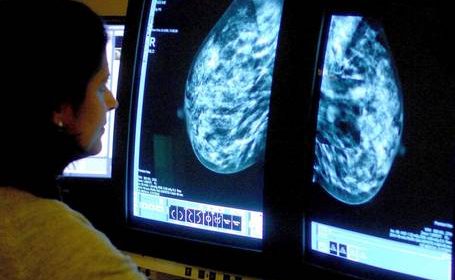Tackling smoking and obesity could help half the diagnosis of cancer in Ireland over the next 25 years

THE rate of increase in diagnosed cancer cases in Ireland over the next 25 years could be halved if the reduction in certain cancer types is matched by key lifestyle problems such as smoking and obesity being tackled.
The warning came as it was confirmed that more than 200,000 cancer survivors are alive in Ireland in 2019 thanks to enhanced treatment systems and support services.
Between 1996 and 2015, the number of people diagnosed with cancer in Ireland soared by a remarkable 85pc.
A similar surge in rates is now expected by 2045, due to the rapidly ageing profile of Ireland’s population and various lifestyle factors ranging from smoking and obesity.
However, National Cancer Registry (NCR) research manager Dr Conan Donnelly, said the rate of increase can be reduced from 90pc-plus to around 50pc.
“The overall increase by 2045 could be a more modest 50pc increase if recent trends, including declines, in rates of some cancers continue,” he said.
“Cancers and related tumours are now the most common cause of death in Ireland (just ahead of diseases of the circulatory system), and an annual average of about 8,875 deaths from invasive cancer (or 9,094 deaths from all tumours) occurred during 2013-2015.”
“Lung cancer was the leading cause of cancer death in both sexes, accounting for 19pc of cancer deaths in women and 23pc in men.”
Cancer has proved far more lethal for men than women.
“The risk of dying of cancer was about 34pc higher for men than for women,” Dr Donnelly said.
“Nevertheless, survival has improved markedly for cancers as a whole and for the most common cancer types since the mid-1990s.
“For invasive cancers the overall five-year net survival increased from 40pc for males during 1994-1998 to 62pc during 2010-2014.”
“In females, five-year net survival increased from 48pc during 1994-1998 to 60pc during 2010-2014.”
Ireland’s four most common cancers among the surviving cancer patient population were breast cancer (23pc), prostate cancer (20pc), colorectal cancer (12pc) and melanoma (7pc).
The revelation came as Breakthrough Cancer Research (BCR) will stage a special conference in Cork aimed at underlining how research is helping to transform the treatment and support of cancer patients.
It will be staged at the Devere Hall in University College Cork on September 5 and 6.
The presentations will see international experts speak about their research areas and how it impacts patients, where the biggest developments have come and what they expect will transform treatment regimes in the next decade.
Among the items to be discussed are a new generation of cancer drugs, the use of immunotherapy treatments and the need for ongoing investment in research.
Breakthrough Cancer Research chief executive Orla Dolan said the public session offers an unique opportunity to hear how cancer treatment and support services are being revolutionised.
“This talk offers a wonderful opportunity to hear from the leading voices in cancer research, right here in Cork and find out about what could change the face of cancer treatment in the years to come. We are excited to have the opportunity to share these developments with the public,” she said.
“It has always been a priority of Breakthrough and the research we fund to keep the patient at the forefront of our minds and our goals.
Organising this conference, we knew the importance of involving the public and offering them the opportunity to be kept up to date of where we are with cancer research at present, what changes we have made, and where we hope to go.”
BCR is leading the way with funding research into cancers with poor prognosis, having already progressed seven treatments from the laboratory to clinical trial.
The organisation works closely with multiple hospitals to ensure its research is responding to the unmet needs of patients with cancers that do not respond to conventional therapies.
Source: Read Full Article
